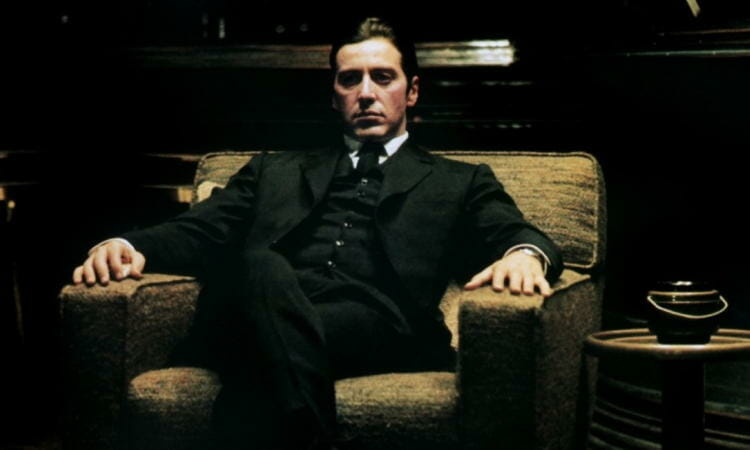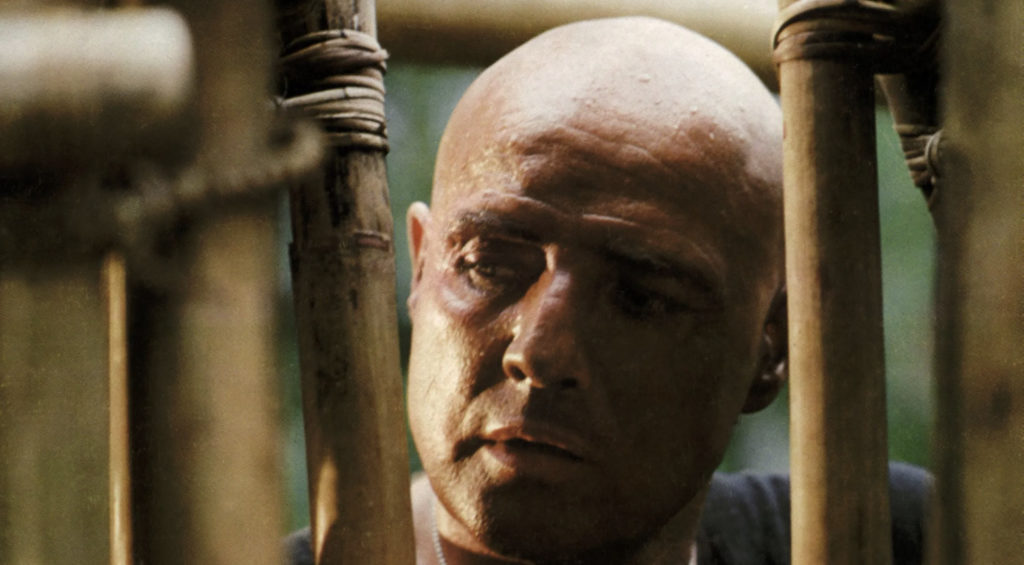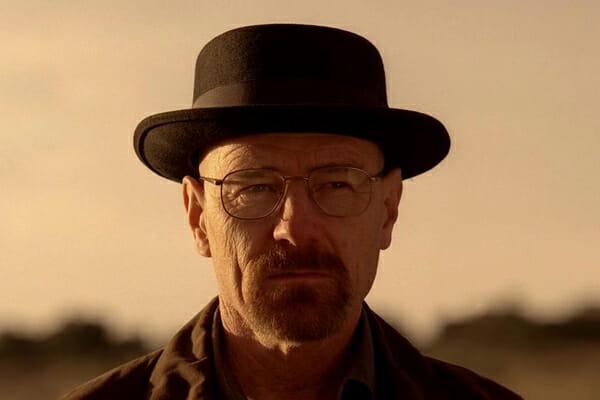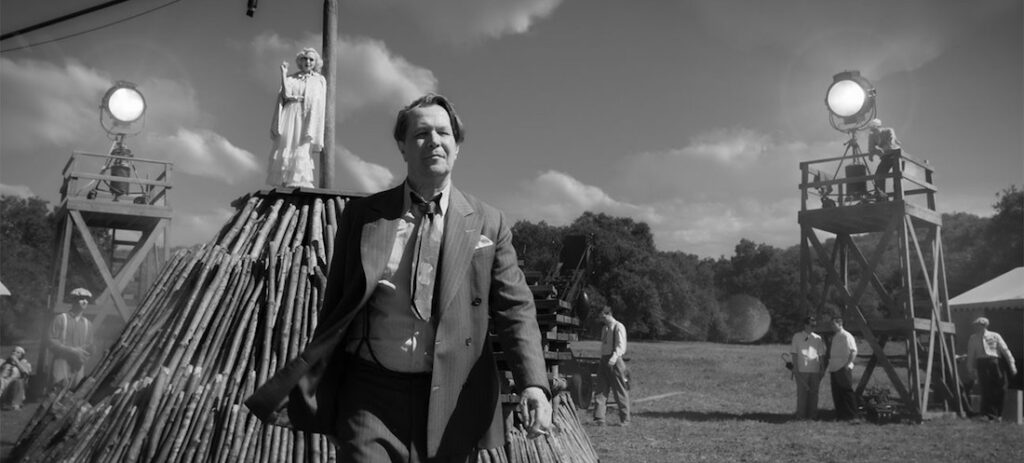The concept of non-public corruption – of a superb individual changing into unhealthy, and even evil – is probably essentially the most enduring concept in all of storytelling. It’s, in spite of everything, the concept that lies on the root of Judeo-Christian storytelling or mythology, with Adam and Eve, and it’s also the animating concept behind so most of the best screenplays ever written, together with these on this Script Assortment. From the Authentic Golden Age of Hollywood to the Nineteen Seventies classics of Hollywood’s Second Golden Age proper by to Twenty first-century masterpieces in each tv and cinema, the thought of the “Good Guy Turned Bad” is on the coronary heart of so most of the best display tales. Solely in these tales (most of which have now assumed nearly mythological standing themselves), it isn’t Eve who tastes the forbidden fruit however media magnates, warfare heroes and even arguably the best screenwriter who ever lived.
Right here, in chronological order, are six of the best good man turned unhealthy movie and tv scripts that look at the transition of a as soon as noble particular person into an ignoble one. If they aren’t fairly a grimy half-dozen, they’re actually a dirty and sullied half-dozen.
Scripts from this Article
1. Citizen Kane (1941)
Directed by Orson Welles; Written by Welles and Herman J. Mankiewicz
One of many some ways during which Citizen Kane represented a radical break with nearly the entire Hollywood filmmaking earlier than it was in its depiction of a very conflicted particular person, Charles Foster Kane, a newspaper baron who acquires the form of energy, together with the flexibility to make or break presidencies or to begin or cease wars, that even 21st-century tech billionaires can solely dream of. And with that absolute energy comes absolute corruption. It’s a quentessential “Good Guy Turned Bad” story.
No spoiler alert: for the few remaining souls who don’t know what “Rosebud” refers to, I cannot give it away now. However suffice it to say that past its rapid which means, it symbolizes – certainly, encapsulates – all of the innocence that the absolutely grown Charles Foster Kane lastly forfeits. And it’s at all times price remembering that the unique title of Herman J. Mankiewicz’s legendary screenplay, which he had labored on for a few years earlier than author and director Orson Welles gave him the possibility to see it realized on display, was “American.”
‘Citizen Kane’
With that authentic, one-word title, Mankiewicz implied that Kane’s tragedy was additionally that of the nation he was born in, represented and nearly dominated: a as soon as idealized state that had change into hopelessly corrupted by greed, self-interest and an nearly absurd fetishization of energy and, specifically, cash. And that’s most likely even more true of America now than when Mankiewicz first wrote Citizen Kane.
Learn Extra: Citizen Kane: A Movie of Mythological Proportions
Obtain the script!
2. The Godfather (1972)
Directed by Francis Ford Coppola; Written by Coppola and Mario Puzo, based mostly on Puzo’s novel of the identical title
It says every little thing concerning the ubiquity, even the universality, of the thought of non-public corruption in cinema that it’s on the coronary heart of each the best movie of the Authentic Golden Age of Hollywood, Citizen Kane, and the best movie of Hollywood’s Second Golden Age, The Godfather. And the comparisons between these two masterpieces prolong even additional. For instance, simply as the unique title of Citizen Kane was American, the very first line of The Godfather is: “I believe in America.” Each movies are state-of-the-individual movies – the primary inspecting a media baron, the second against the law baron – which might be actually state-of-the-nation movies.
The ”Good Man Turned Dangerous” in The Godfather is, in fact, Michael Corleone, the multi-decorated, warfare hero son of Vito, who, as we study on the finish of The Godfather Half II, was initially nearly ostracised by his household, particularly his older brother Santino or Sonny, for deciding to battle for his nation fairly than becoming a member of the “family business” and combating for that as an alternative. In the end, nevertheless, the pull of blood proves stronger than the pull of nationhood.

‘The Godfather’
Within the movie’s opening wedding ceremony sequence, Michael proudly proclaims, “That’s my family, Kay. It’s not me,” distancing himself from the attract of criminality. Nonetheless, when his household is instantly threatened – when his father is sort of assassinated – he rushes to the hospital and, discovering nobody else from the household there (they’ve all been cleared out by the corrupt cop, McCluskey, to go away the way in which open for Vito’s rival, Sollozzo, to complete the job), he has to tackle the function of protector himself. And from protector he quickly turns into an avenging angel, finally killing McCluskey and Sollozzo himself, thus sealing his destiny and dropping his soul.
Learn Extra: Francis Ford Coppola and Mario Puzo Delve into The Godfather Screenplay
Obtain the script!
3. Apocalypse Now (1979)
Directed by Francis Ford Coppola; Written by Coppola and John Milius
If The Godfather was Francis Ford Coppola’s examination of American innocence misplaced on the house entrance, then Apocalypse Now was his portrayal of American innocence misplaced overseas, particularly within the slaughtering fields of Vietnam. And what makes Apocalypse Now so fascinating from the viewpoint of people being corrupted is that it depicts two people present process that transformation: each hunted and hunter, that’s each the rogue Colonel Kurtz and Captain Willard, the person despatched to “terminate [him] with extreme prejudice.”
In his lengthy and winding journey upriver by Vietnam and into Cambodia, Willard, a multi-decorated soldier himself (identical to Kurtz, and certainly Michael Corleone), finds himself reflecting (in voiceover) on the rising similarities between himself and the person he has been despatched to kill. Certainly, he begins to query the validity of his mission and whether or not any man has the proper to take one other man’s life. However when push involves shove and he lastly encounters Kurtz, he finally decides to hold out his orders and kill him, no matter it means for him personally.

‘Apocalypse Now’
It is usually price taking into account that each Citizen Kane and Apocalypse Now, two of the best movies of the 20th century, had been initially impressed, not directly or instantly, by Joseph Conrad’s seminal Nineteenth-century novella, Coronary heart of Darkness. (Apocalypse Now is instantly “inspired” by Coronary heart of Darkness, because the title web page of the screenplay proclaims, and Orson Welles had initially deliberate to movie Conrad’s novella earlier than filming Mankiewicz’s script for Citizen Kane as an alternative.) Initially printed in 1899, it’s arguably the one most vital piece of 19th-century fiction, forward even of the numerous masterpieces of Jane Austen and Charles Dickens, in that it foreshadows a lot of 20th-century historical past and even 20th-century cinema.
Based mostly on Conrad’s personal expertise of European colonialism within the Congo, Coronary heart of Darkness means that so-called “Western civilization” is inevitably corrupted and debased by its contact with supposedly “inferior” peoples, such that it’s the Westerners who’re finally uncovered because the “savages” and never the indigenous peoples who they exploit and even destroy. On this means, it reveals not a lot “Good Guys Turned Bad” as Good Civilizations Turned Dangerous.
Learn Extra: 5 Plot Level Breakdown: Apocalypse Now
Obtain the script!
4. Thelma and Louise (1991)
Directed by Ridley Scott; Written by Callie Khouri
After all, it isn’t simply “good guys” who go unhealthy however good gals, too, nowhere extra so than in Callie Khouri’s still-seminal screenplay for Thelma and Louise. The unique “female road movie” can be a refined research of non-public corruption, or a minimum of the erosion of particular person beliefs, because the titular pair are remodeled from a housewife and waitress right into a pair of killers on the run.
Callie Khouri’s genius in Thelma and Louise is to point out that her heroines should not actually villains however victims, in a superb inversion of the normal “Good Guy Turned Bad” trope (simply as Thelma and Louise is an excellent inversion of so many conventional cinematic tropes). In the end, Thelma and Louise, like so many ladies, together with Khouri herself (who was first pushed to write down the screenplay due to her personal incessant humiliation as a waitress by male prospects), are the victims of patriarchy, whereby an invite to bop is seen as a greenlight to rape.

‘Thelma and Louise’
Nonetheless, as soon as they’ve dedicated their authentic crime of homicide, after which doubled down on it with theft to facilitate their escape to Mexico, not even the profound sympathy of the police chief monitoring them (performed by Harvey Keitel in arguably his most sympathetic and due to this fact against-type function) can save them from their destiny.
Learn Extra: 3 Screenwriting Suggestions from Thelma and Louise Screenwriter Callie Khouri
Obtain the script!
5. Breaking Dangerous (2008-2013)
Created by Vince Gilligan
It maybe says every little thing concerning the primacy of tv (small-screen storytelling) within the 21st century over cinema (big-screen storytelling) that the very best, or fairly worst, “Good Guy Gone Bad” of current a long time might be Walter White of creator Vince Gilligan’s tv collection, Breaking Dangerous. After all, like Walter himself in Albuquerque, the theme of non-public corruption is hiding in plain sight within the title, a spin on the normal breaking ball in baseball, which is a straight-thrown ball that all of a sudden deviates, or breaks, sharply. And so does Walter White when he’s identified with terminal most cancers.

‘Breaking Bad’
Gilligan himself memorably summarized his story, saying that he pitched it as “Mr. Chips turns into Scarface.” And that character arc or journey is there within the already-legendary pilot episode, during which Walter, essentially the most unassuming (and due to this fact largely ignored) of males, all of a sudden realizes that if he’s to help his spouse and youngsters after he’s gone he will be unable to take action by educating. Consequently, he places his information of chemistry (which we later study is nearly of Nobel prize-winning normal) to higher, or fairly worse, use by making crystal meth. And thus his transformation from “Mr. Chips” to “Scarface,” or from trainer and straight-down-the-line citizen to drug supplier and cold-blooded killer, begins.
Learn Extra: Breaking Dangerous: A Tribute To Heisenberg’s Blue Crystal Kingdom
Obtain the script!
6. Mank (2020)
Directed by David Fincher; Written by Jack Fincher
To finish this evaluation of nice display journeys from good to unhealthy, we return to the place we started, with David Fincher’s magisterial biopic of Herman Mankiewicz, the co-writer – certainly, the unique author – of Citizen Kane. Mank (as Mankiewicz was identified to his closest associates) was based mostly on a screenplay by Fincher’s late father and maybe that is among the explanation why it really works so effectively, specifically that it took a father and son group to discover the two father and son relationships on the coronary heart of Citizen Kane: not simply that between the older, extra cynical Mankiewicz and the youthful, extra optimistic Welles however that between Mankiewicz and his precise topic and inspiration for Kane, Randolph Hearst, who was initially not his enemy however his benefactor.
The time period “origin story” has change into nearly ubiquitous in cinema in recent times, with so many so-called “origin stories” about superheroes or Star Wars characters. But Mank is arguably the last word origin story, not simply of Citizen Kane itself however of a lot 21st-century display storytelling, together with the “fake news” that has change into so outstanding in our so-called “post-truth” age. The genius of Mank is to point out that the person who was maybe primarily liable for a lot of that cinematic and televisual duplicity was Herman J. Mankiewicz, a author who was supposedly dedicated to telling the reality.

‘Mank’
It’s as a result of he had inadvertently helped Hearst and his supporters to safe victory in an election (because of their appearing on considered one of his usually sensible however throwaway remarks) that Mankiewicz is set to wreak revenge on Hearst, no matter the associated fee to himself and his profession, by writing Citizen Kane. And on this means, Mank stands out as the final instance of “The Good Guy Turned Bad,” in that in the end “The Good Guy Turned Bad” turns into good once more, or a minimum of tries to.
Obtain the script!
“Well bless their hearts.”












